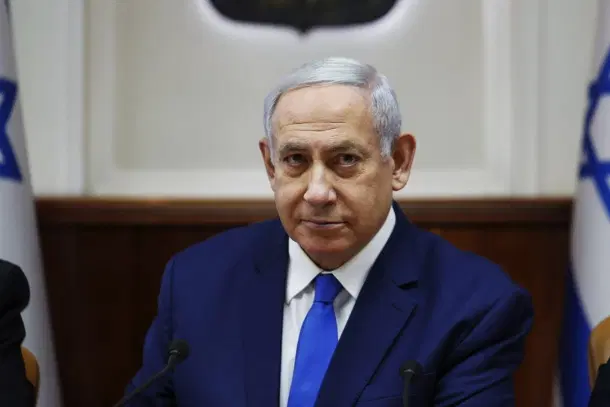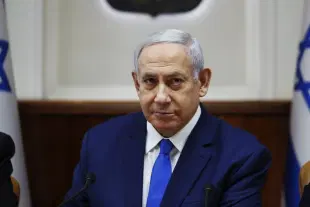News Brief
Who Are The Druze—The Secretive Sect At The Centre Of Israeli Airstrikes On Syria’s Islamist-Backed Regime Forces
Swarajya Staff
Jul 16, 2025, 11:51 AM | Updated 11:52 AM IST
Save & read from anywhere!
Bookmark stories for easy access on any device or the Swarajya app.


For a second consecutive day, Israel launched strikes on Syrian forces near the border on Tuesday (15 July), reaffirming its commitment to a demilitarized buffer and the protection of the Druze minority amid rising violence close to the Israeli border.
Drone activity and airstrikes were reported over the Syrian Druze-majority city of Sweida, where clashes since Sunday have left dozens dead, news agency Reuters reported.
The escalating conflict highlights the difficulties confronting interim Syrian President Ahmed al-Sharaa, who has yet to gain firm control over the over the area near the Israeli border since assuming power after Bashar al-Assad’s ouster in December.
Despite warming relations with the Trump administration, Sharaa’s Islamist-led government faces deep-rooted suspicion from minorities, exacerbated by the March massacres of Alawites that widened sectarian fault lines.
The Syrian foreign ministry blamed Israel entirely for the latest attacks, pledging to defend all citizens, including Druze.
It confirmed fatalities among soldiers and civilians but withheld specific figures.
Damascus also announced it would pursue legal measures against any individuals implicated in abuses, stating that rank would not shield violators from accountability.
US envoy Tom Barrack said Washington is engaging with all parties “to navigate towards calm and integration” amid concerns of further escalation.
According to Axios, US officials have asked Israel to halt further strikes. Israel reportedly agreed to pause operations by Tuesday evening.
The Druze are a small, secretive ethnoreligious community that emerged in the early 11th century in Egypt.
They broke away from mainstream Islam during the rule of the Fatimid Caliph al-Hakim bi-Amr Allah and developed a distinct monotheistic belief system.
Their faith draws from Islamic, Gnostic, Greek, and even Hindu philosophical traditions — but remains closed to outsiders.
Conversion into the Druze faith is not permitted, and religious texts are only accessible to a select group of initiates called the ʿuqqāl.
Today, the Druze number around one million globally.
The largest populations are in Syria (primarily in the Sweida province), Lebanon, and Israel, with smaller communities in Jordan and the diaspora. Despite living among Arabic-speaking Muslim majorities, they have preserved a strong communal identity and a parallel religious leadership.
In Syria, they’ve largely kept to themselves — occasionally aligning with the state or armed factions depending on circumstances.
In Israel, the Druze are integrated citizens. Roughly 130,000 live in the north, and many serve in the Israeli military and hold senior posts in the security establishment.
This has fostered what Israeli leaders often describe as a “brotherhood” between Druze citizens and the state — a sentiment that now extends across the border to Syrian Druze.
The Druze community’s insular nature, combined with its minority status, often makes it vulnerable during regional upheavals.
In the Syrian civil war and its aftermath, Druze leaders have tried to maintain neutrality.
But repeated violations by state forces and Islamist militias have pushed parts of the community to arm themselves.
Israel, in turn, has positioned itself as a protector of Druze interests — a position that now plays a central role in its ongoing military engagement in Sweida.
After the December 2024 fall of Bashar al-Assad, Syria's new President al-Sharaa pledged to unite the country and protect minorities. However, he has struggled to bring religious groups like the Druze into his national fold.
Israel’s recent assault came after Druze cleric Sheikh Hikmat al-Hajri accused Syrian forces of violating a ceasefire and urged armed resistance against what he termed a “barbaric attack.”
Shortly after al-Hajri’s address, Syrian Defence Minister Murhaf Abu Qasra announced a full ceasefire and claimed Syrian troops would only return fire if attacked.
Abu Qasra added that military police were being dispatched to Sweida to "control military behaviour and hold violators accountable", according to state media SANA.
Israeli Prime Minister Benjamin Netanyahu and Defense Minister Israel Katz said they had ordered Israel's military to strike "regime forces" and weaponry brought to Sweida to be used against the Druze.
They emphasised that Damascus had breached a demilitarization policy by moving troops and armaments into southern Syria, near Israeli territory.
"Israel is committed to preventing harm to the Druze in Syria due to the deep brotherhood alliance with our Druze citizens in Israel," they said.
"We are acting to prevent the Syrian regime from harming them and to ensure the demilitarization of the area adjacent to our border with Syria," they added.
The current round of violence in Southwestern Syria erupted on Sunday, as clashes between Druze militias and Bedouin factions swept Sweida province, displacing thousands.
Druze religious leaders had initially agreed to let Syrian troops enter Sweida to quell the violence, urging local militias to disarm and cooperate with state forces.
However, Sheikh al-Hajri later denounced the agreement as coerced, accusing Syrian troops of violating it by attacking civilians in Sweida.
"We are being subject to a total war of extermination," he said, calling on all Druze "to confront this barbaric campaign with all means available".
Syrian army convoys had penetrated several Sweida neighborhoods and continued firing.
On Monday, Israel confirmed conducting preemptive strikes on tanks nearing Sweida, citing potential threats to its national security.
Also Read:6.81 Crore Enumeration Forms Collected: Bihar Nears Completion Of Voter Roll Overhaul





